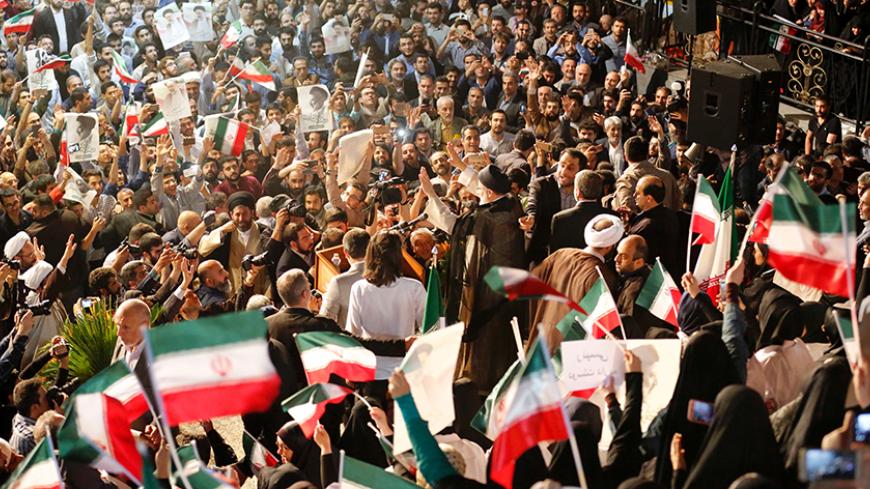Iran is in the midst of an intense election campaign with six presidential candidates pledging how they would address the country’s economic issues through their respective policies. While incumbent Hassan Rouhani and First Vice President Eshaq Jahangiri are focused on justifying a continuation of their government’s economic policies, the other four candidates are presenting economic remedies that need to be scrutinized — especially through the lens of whether they would actually be feasible and also whether they present real solutions to the country’s complex economic issues. This article will initially critique some of the campaign pledges of Rouhani’s main challengers — conservative cleric Ebrahim Raisi and Tehran Mayor Mohammad Bagher Ghalibaf — and then offer some expert remedies that need to be the focus of the next government if the real goal is to address the core socio-economic issue, namely unemployment.
Evidently, any pledge of economic reforms — especially when dealing with ideas that will create a burden on the government budget — will have to be scrutinized based on the question of which financial resources will finance the plans in question. Hence, the first question is what the economic plan is rather than individual promises and pledges. A quick review of the pledges so far shows that none of Rouhani’s challengers (Raisi, Ghalibaf, former Minister of Culture and Islamic Guidance Mostafa Mirsalim, and Reformist Mostafa Hashemi-Taba) have a real economic plan but rather economic promises that in some cases are based on a populist discourse such as the increase in the present monthly cash handouts of 455,000 rials ($14). However, let us focus on some of the pledges and identify their shortcomings.



